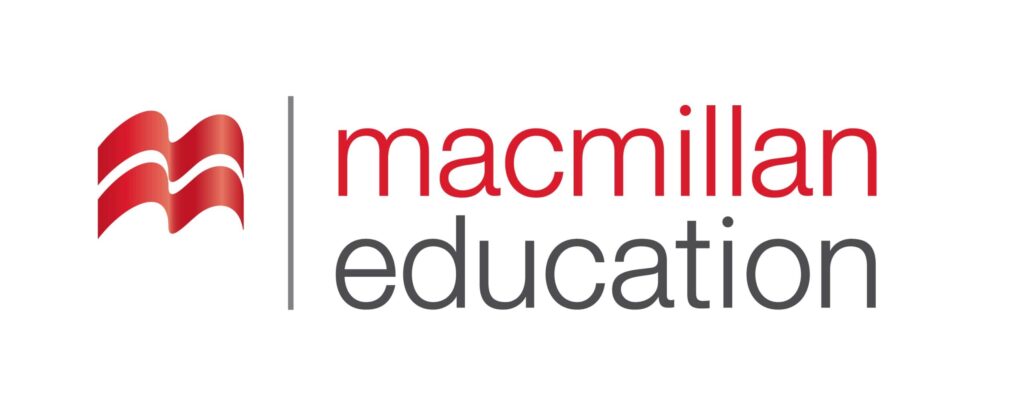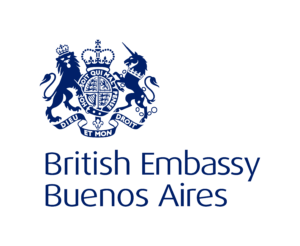CLICK HERE TO GET YOUR CERTIFICATE
CLICK HERE TO GET YOUR GOODIE BAG
FINAL PROGRAMME
BIODATA AND ABSTRACTS
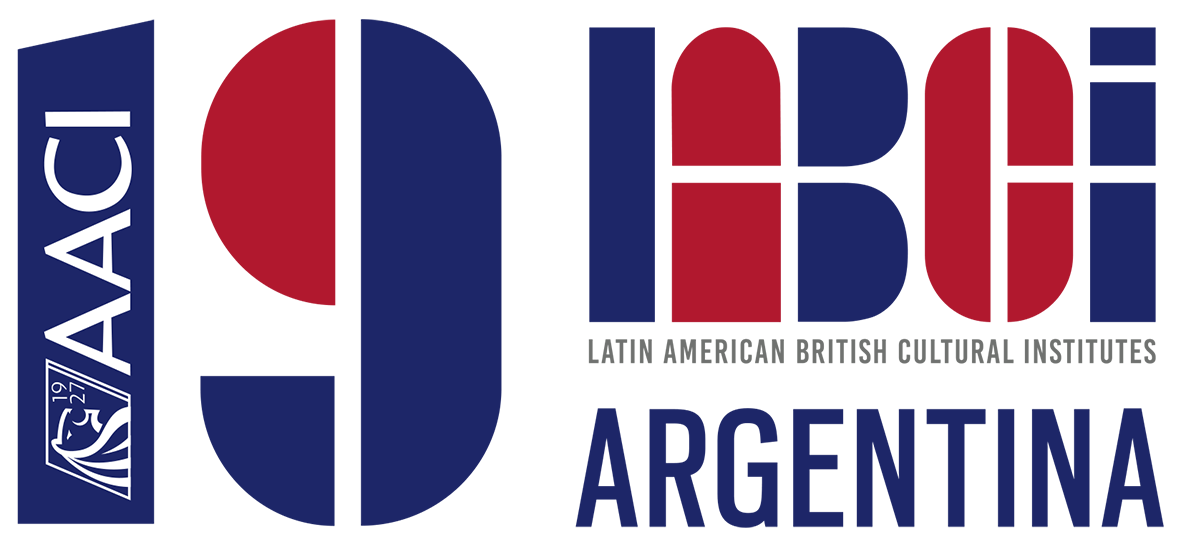
Rethinking Roads,
Turning Globalisation
into Collaboration.
AUGUST 25 & 26, 2023
ONLINE
CONFERENCE
ONLINE
CONFERENCE
AUGUST 25 & 26, 2023
Declared of Cultural Interest by the Government of the City Buenos Aires, RS-2023-3896-GCABA-MCGC.


PLATINUM SPONSOR
Day(s)
:
Hour(s)
:
Minute(s)
:
Second(s)
Speakers
PLENARY SPEAKERS
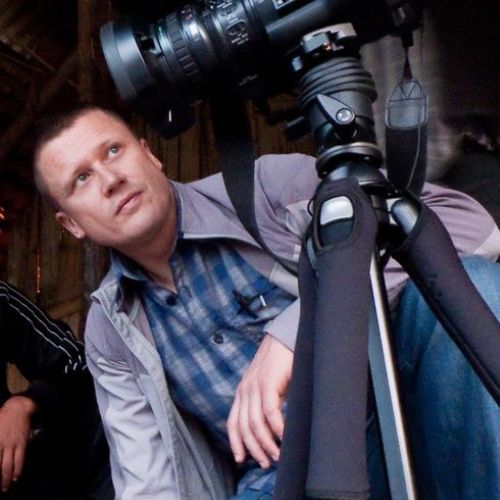
Dr. K. David Harrison
Sponsored by National Geographic Learning

Lindsay Clandfield
Sponsored by Helbling
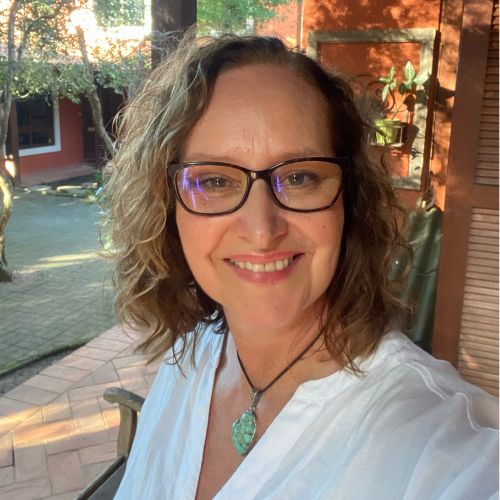
Lucy Crichton
Sponsored by Macmillan

Scott Thornbury
Sponsored by Cambridge
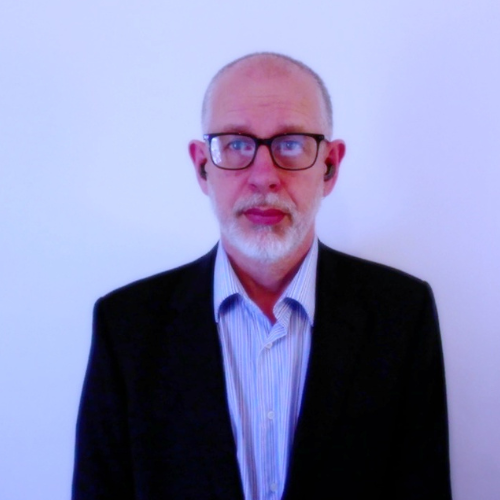
Nik Peachey
Sponsored by Oxford

Nicky Hockly
Sponsored by Oxford
Our 2023 Keynote Speakers
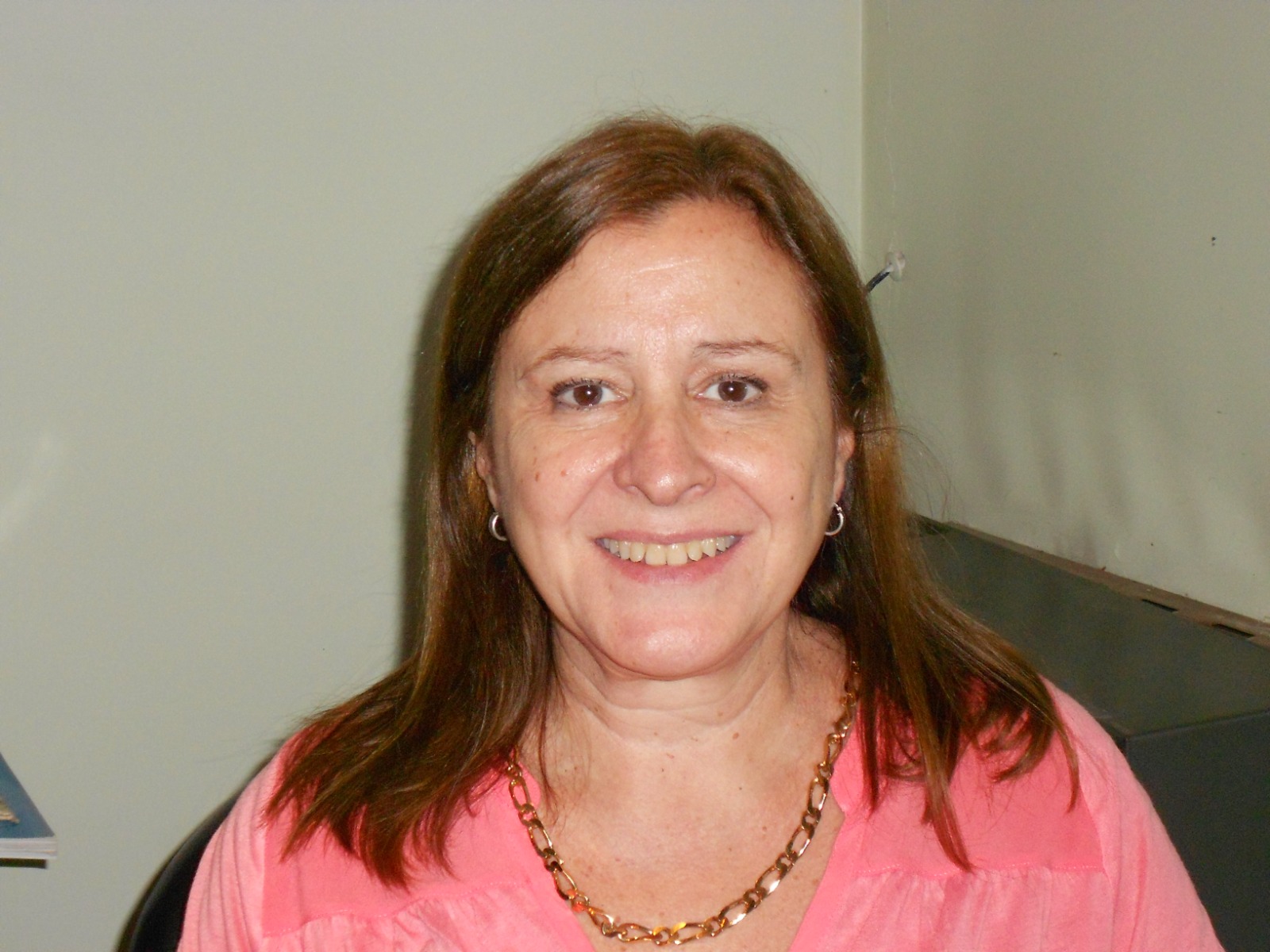
Leonor Corradi
Sponsored by Pearson
MSc in Education and Teacher Training (Surrey University, UK), and Education and ICT Specialist. ELTon Judge and GSE ambassador.
LABCI: Planning: an opportunity for discovering new roads
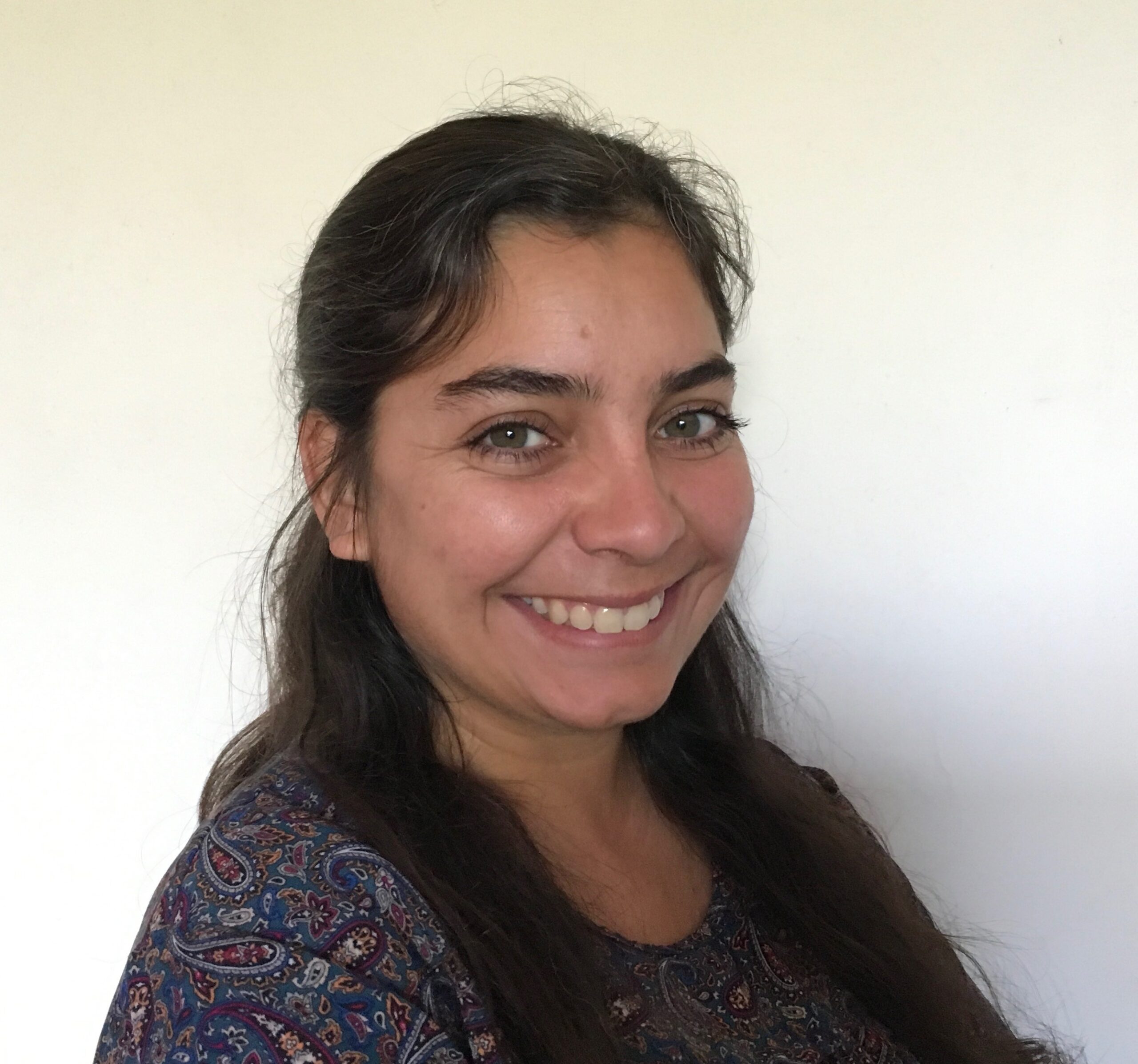
Serrana Muniz
Sponsored by British Council
MA in Digital Technologies, Communication and Education (Manchester, UK). Academic Consultant for the British Council, Argentina.
Inclusion in remote teaching and online learning
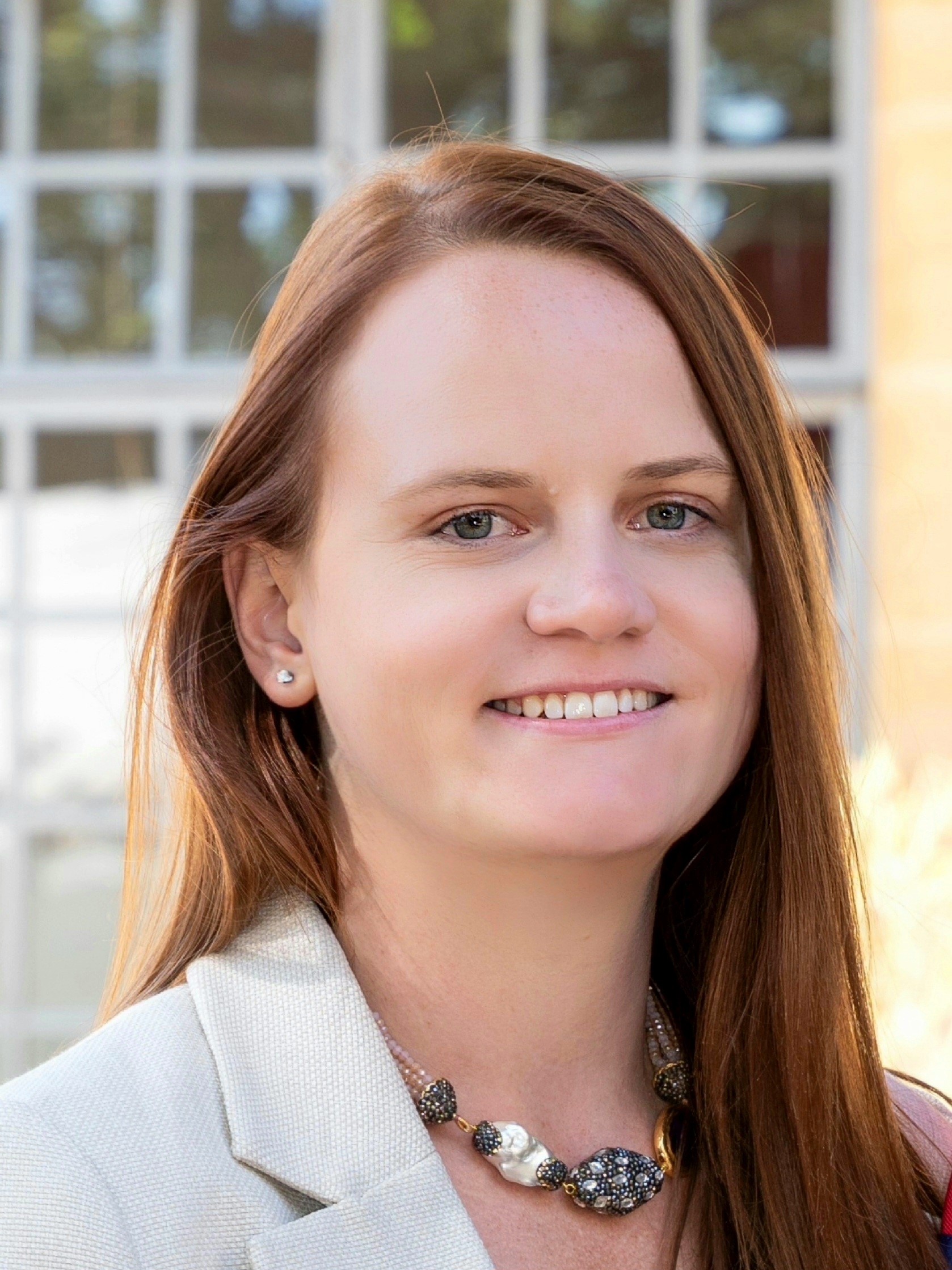
Caitlin Wild
Sponsored by Cambridge
MSc in Applied Linguistics and Second Language Acquisition (University of Oxford). Insight Application Manager at Cambridge University Press and Assessment with a focus on skills beyond language and corpus applications in education.
Enhancing Employability: Preparing Learners for the Modern Workplace
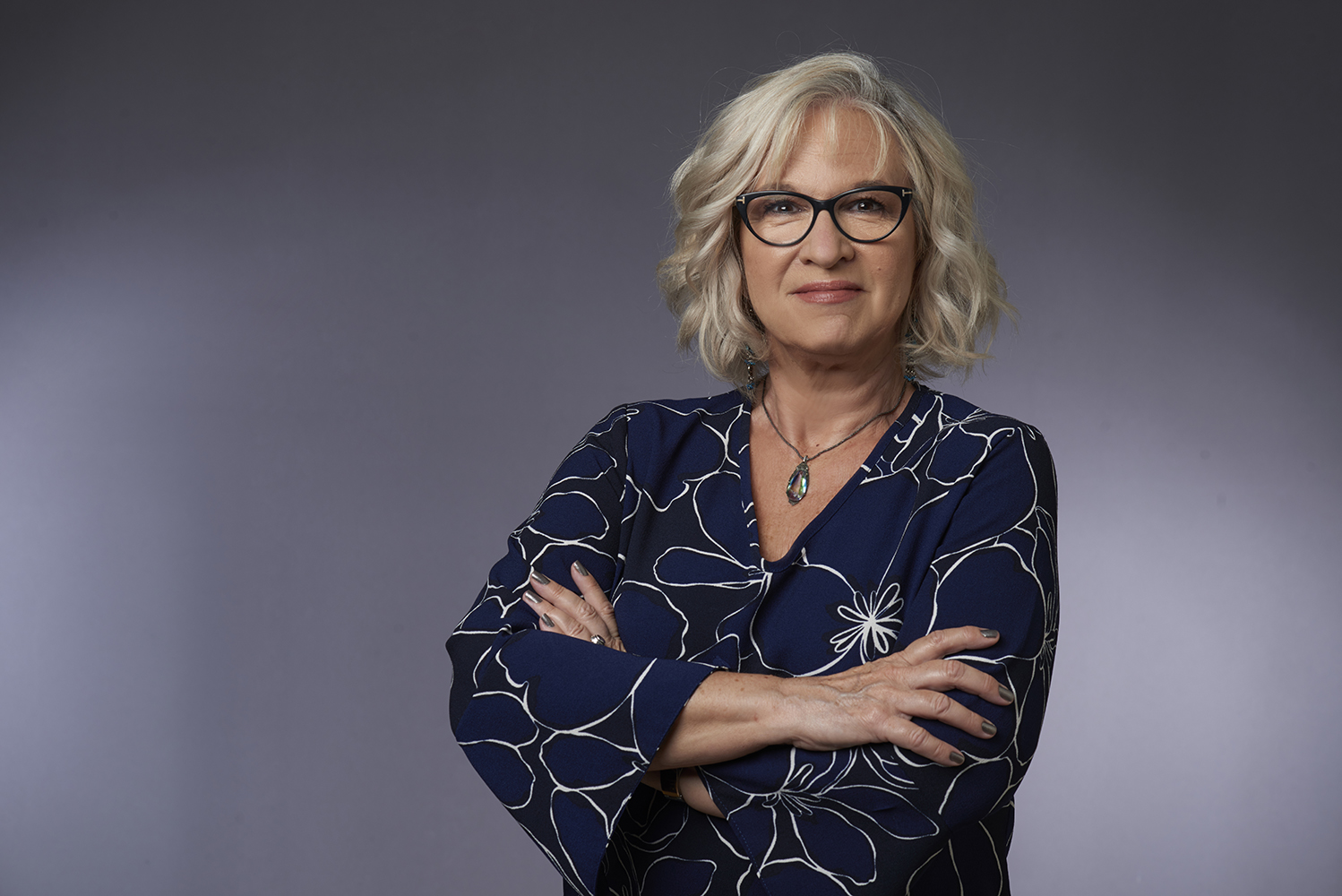
Claudia Ferradas
Sponsored by Oxford
Teacher educator, poet and writer of educational materials. PhD in English Studies from the University of Nottingham. Visiting lecturer at Universidad Nacional de Lujan and Affiliate Trainer with NILE in the UK.
ChatGPT: can you help me mediate?
Strategies for mediation in class and on screen
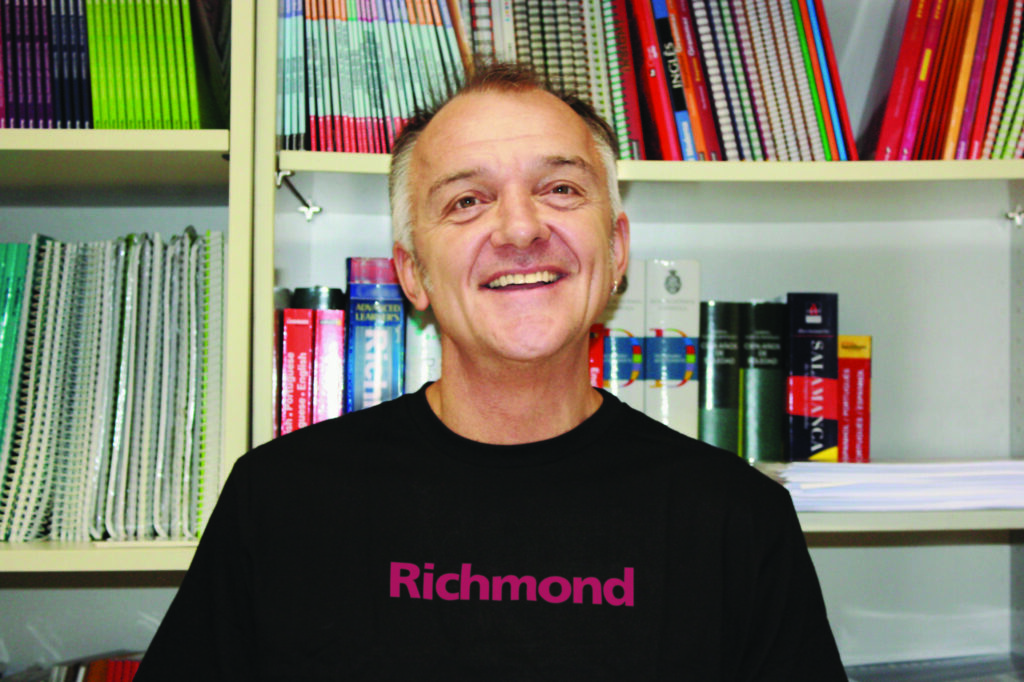
Paul Seligson
Sponsored by Richmond
MA in TEFL and a CELTA assessor. Author, freelance teacher, teacher trainer and consultant.
Text exploitation toolkit!
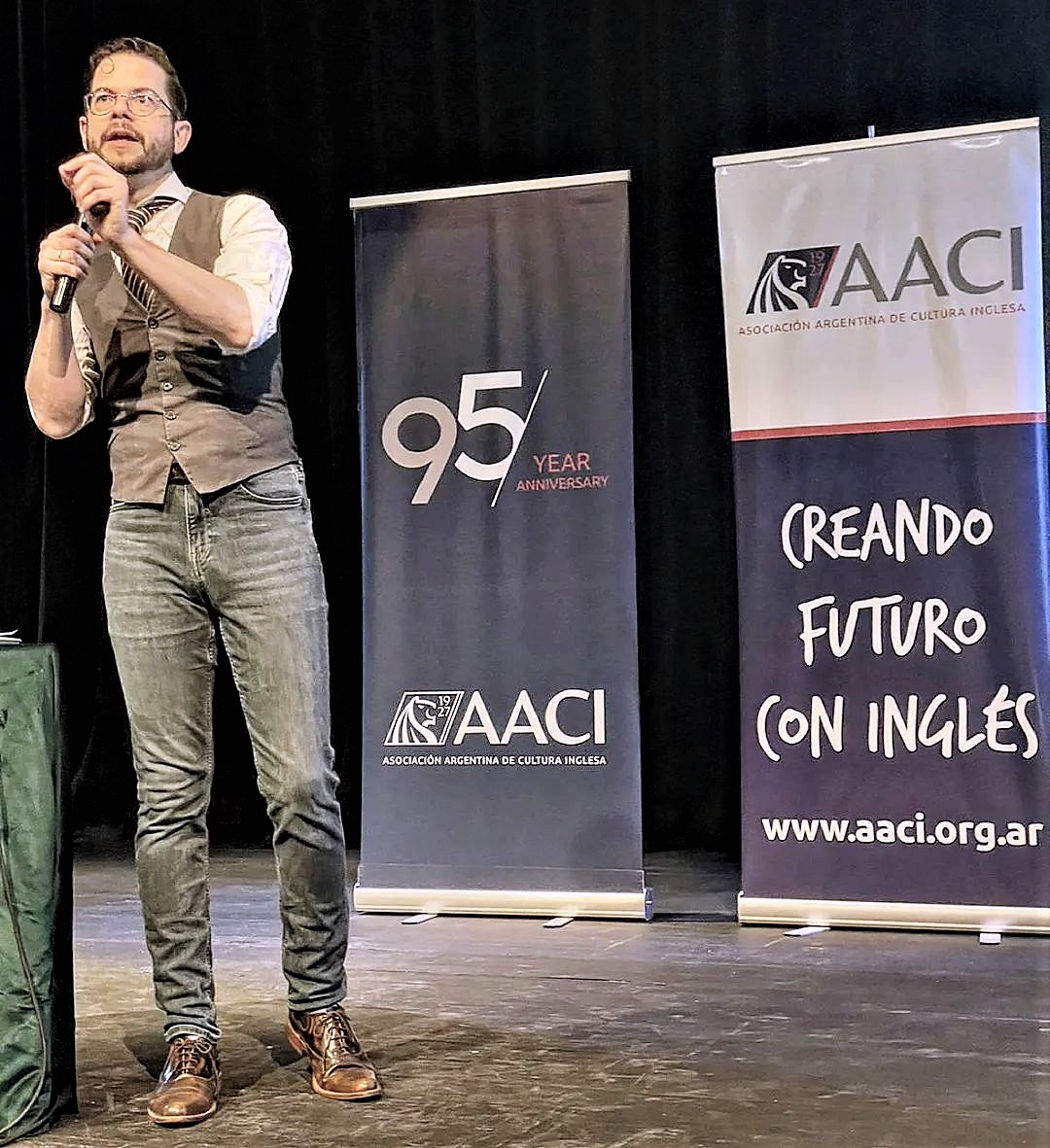
Alastair Grant
Sponsored by Macmillan
Teacher Trainer, Academic Director, ELT author and public speaker.
Flow Theory: when everything in the classroom clicks.
ABOUT LABCI
The Association of Latin American British Cultural Institutes (LABCI) was founded in the 1980s by a small group of non-for profit language schools – culturas – from Argentina, Brazil, Chile, Mexico, Paraguay, Peru and Uruguay. These institutions joined forces and started working collaboratively to share their know – how and to contribute to the EFL community.
Every year, over 400,000 people form part of this community by taking language lessons, choosing language certifications and participating in a range of professional EFL development programmes.
Moreover, a wide range of cultural activities is offered to bring English speaking cultures closer to the countries where LABCI is present.
LABCI MEMBERS
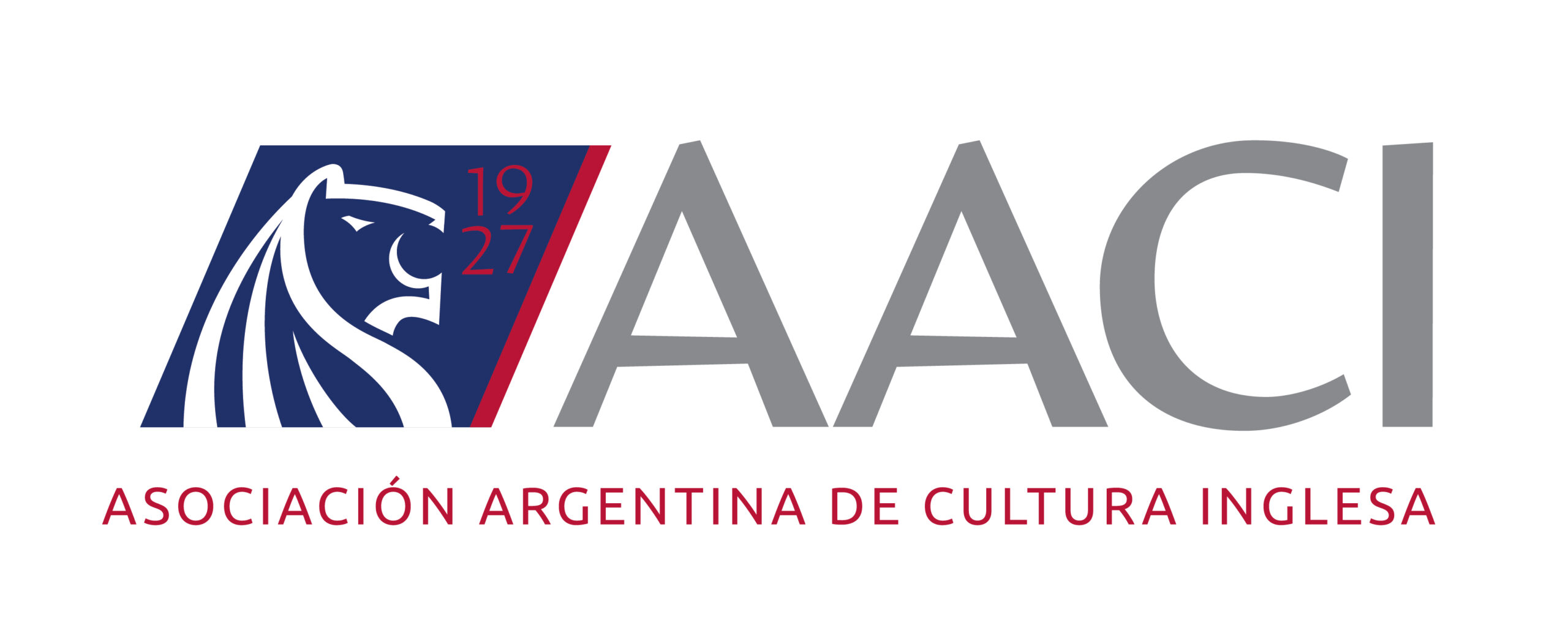




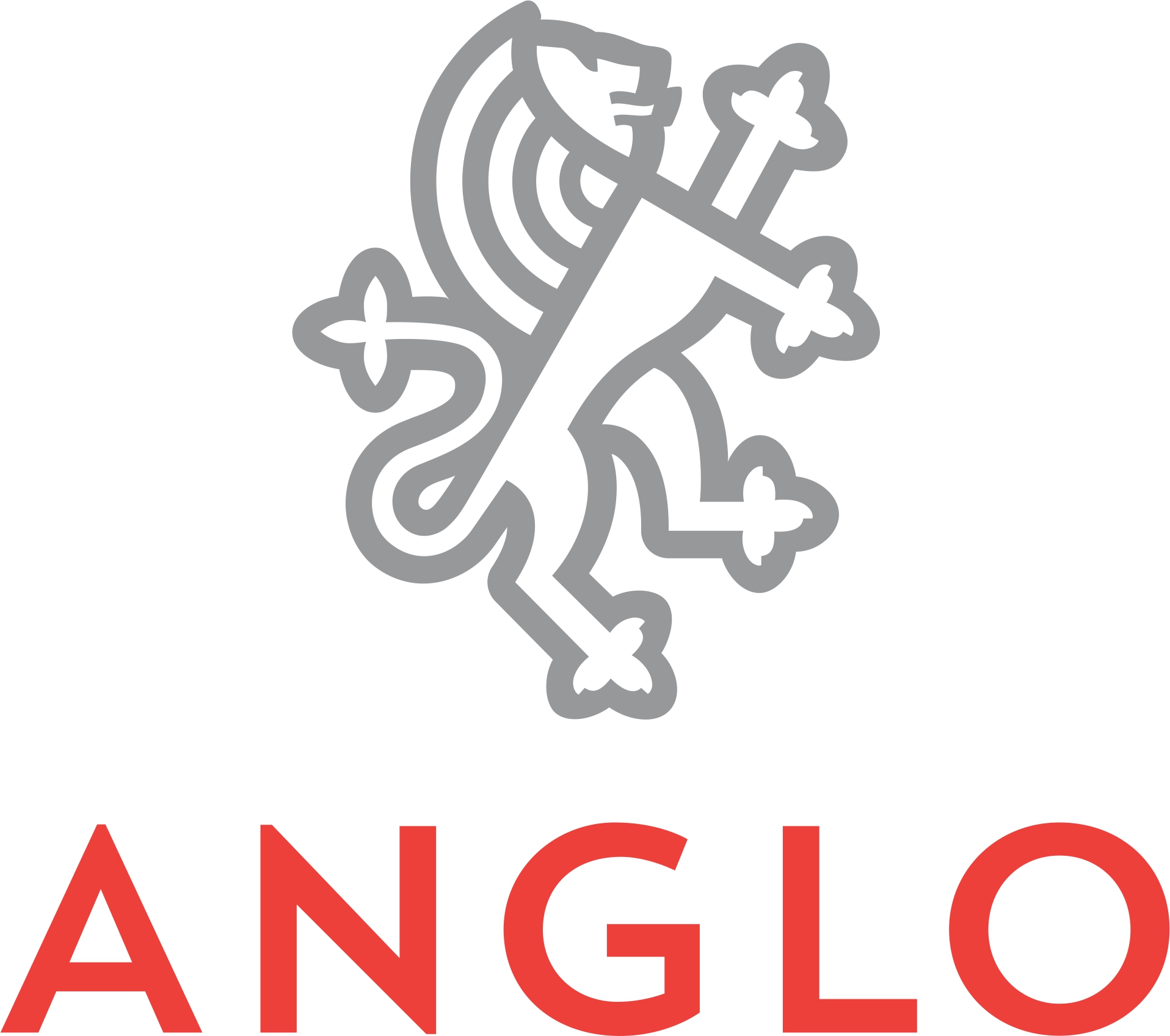
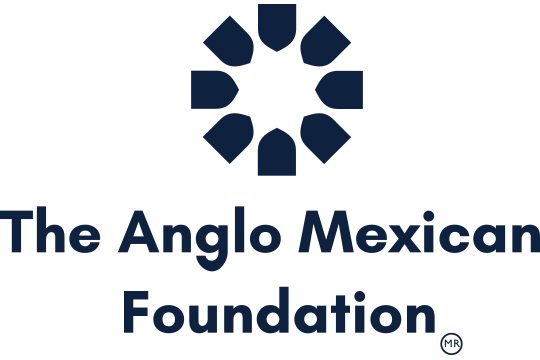
Rethinking Roads: Turning Globalisation into Collaboration
AACI holds the presidency of LABCI this year and is honoured to host the Online Conference 2023
ABOUT AACI
Asociación Argentina de Cultura Inglesa, founded in 1927, is a non-profit organisation, whose main aim is to spread the English language as well as the British culture.
AACI has evolved, achieving excellence and living up to its mission, thanks to the strong sense of duty of a team of men and women – first known as AACI associates, nowadays members of the Board of Directors. It is thanks to this commitment that AACI has become a leading institution in the field of English Language Teaching in Argentina and is actually recognised for its vision and transparency. For almost a hundred years, over a million learners have been part of the AACI experience led by caring, first-class professionals.
ORGANIZING COMMITTEE
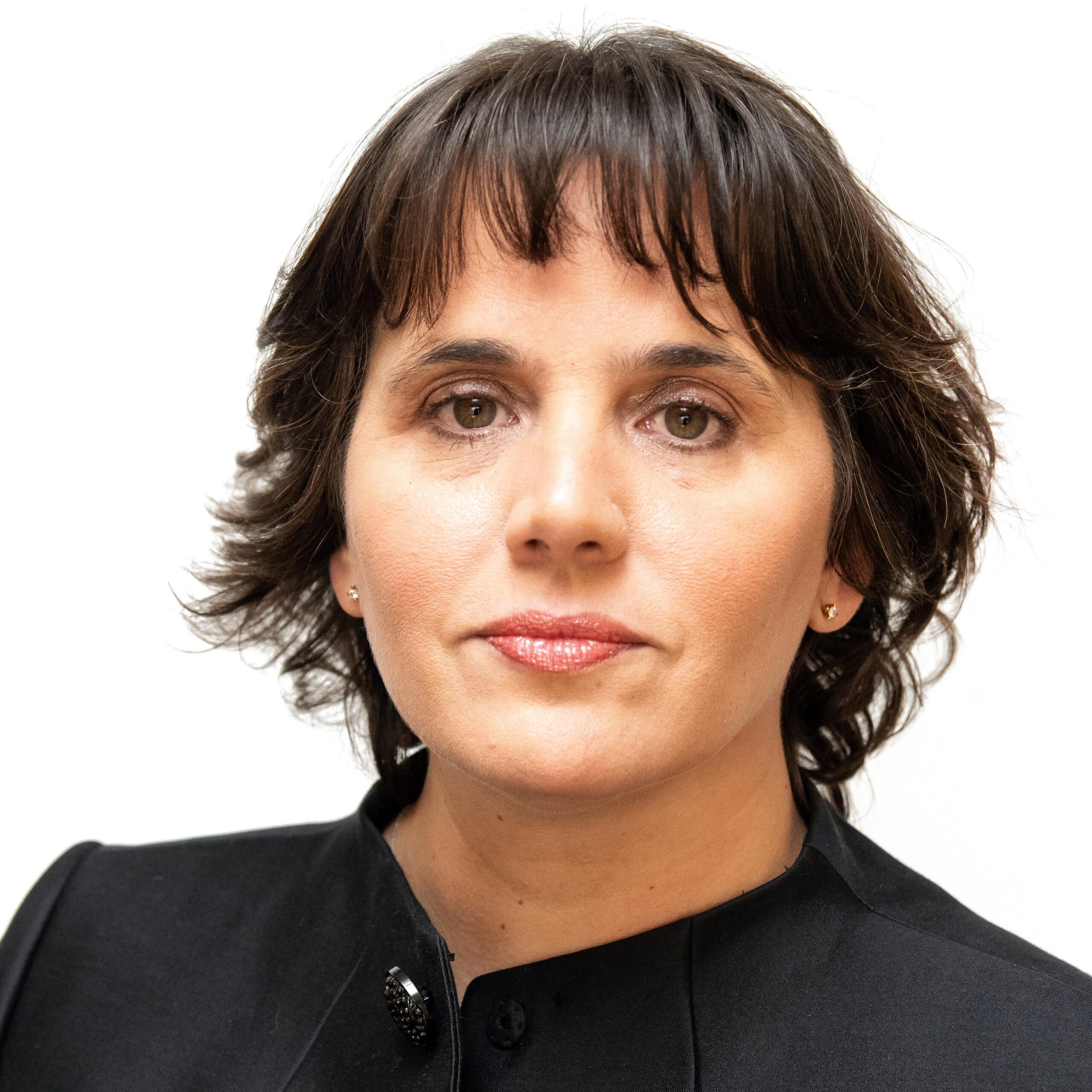
Josefina Rouillet
Executive Director, AACI

Analía Ferraro
Lomas de Zamora Branch Coordinator, AACI

Natalia Boffa
Barracas Branch Coordinator, AACI
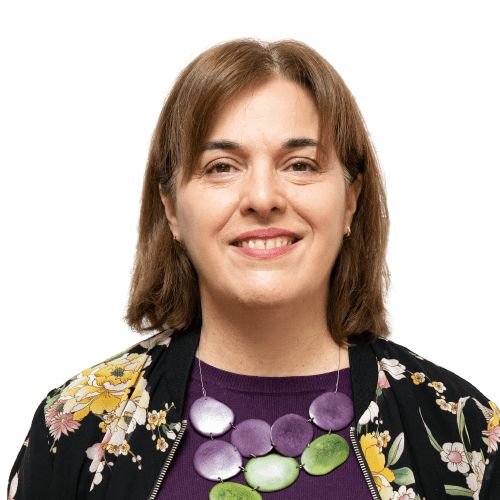
Gabriela López López
AACI Certificates Coordinator
ACADEMIC COMMITTEE

Dario Luis Banegas
Dario Luis Banegas is a Doctor in Philosophy (PhD) and Applied Linguistics, University of Warwick. Lecturer in Language Education at the University of Edinburgh. He has published edited volumes with Bloomsbury, Multilingual Matters, and Routledge.
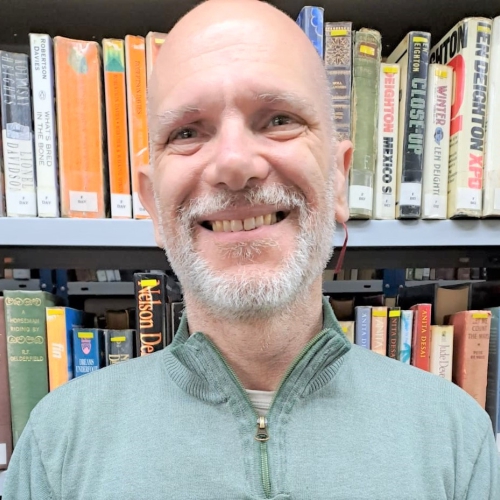
Daniel Ferreyra Fernández
Daniel Ferreyra Fernández is an ISP “Dr. Joaquín V. González” graduate who specialized in Contemporary Literature. He holds the chair for English Language IV and Contemporary Literature at IES en Lenguas Vivas “Juan Ramón Fernández”, ENS en Lenguas Vivas “Sofía B. de Spangenberg” and at ISP “Dr. Joaquín V. González”. He was the Vice Dean at IES en Lenguas Vivas “Juan Ramón Fernández”, where he is currently one of the Coordinators of the English Department.

Carlos A. González
Carlos A. González holds an MA in Education from the University of Bath. At present, he is the Headmaster at Barker College (Lomas de Zamora), teacher at IFD N. 52 (San Isidro), Vice Chair of English Speaking Scholastic Association of the River Plate (ESSARP) Executive Committee and member of the Executive Committee at Establecimientos Privados Educativos Asociados (EPEA).
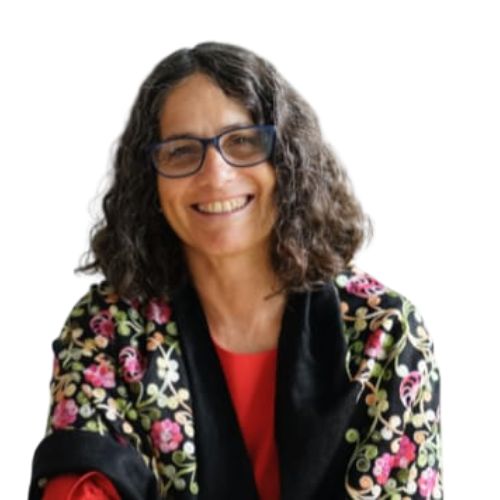
Gabriela Kaplan
Gabriela Kaplan is a psychologist, literature and cultural studies teacher who graduated from Universidad de la República, Uruguay, University of London, UK and California State University, USA.
She co-designed the Ceibal en Inglés programme. She has taught at different universities and currently coordinates Ceibal en Inglés.

Silvia Rettaroli
SILVIA RETTAROLI is a Teacher of English and Teacher Educator – Curriculum and Materials Designer based in Argentina with international experience. Large scale exams administrator (CLE – Ministry of Education in BA). British Council e-moderator – International Academic Consultant

Graham Stanley
Graham Stanley is the British Council’s English Programmes Lead for the Americas, based in Mexico City. He has a M.Ed. in ELT & Educational Technology (Manchester, UK) and is the author of ‘Language Learning with Technology’ (CUP, 2013), awarded the English Speaking Union’s ‘HRH Duke of Edinburgh ELT book of the year’ award. His last book was ‘Remote Teaching (British Council, 2019).

Silvana Tejón
Silvana Tejón holds a Master’s Degree in Educational Leadership issued by the University of Bath, UK. At present she works as Academic Director at ESSARP (English Speaking Scholastic Association of the River Plate) and is in charge of PD for the teachers and heads of 180 bilingual schools in Argentina. Her latest areas of interest are related to Leadership and Professional Development.
Leonor Corradi
LABCI: Planning: an opportunity for discovering new roads
As teachers, we know that planning is something we all do. It is said that when planning, we should have our learners in mind. To what extent do we consider a form of collaboration between teachers and learners when planning? We will explore ways to look at planning in such a way that we could discover new roads that will impact on both teaching and learning.
Teacher of English, Master of science in Education and Teacher Training (Surrey University, UK), and Education and ICT Specialist; former member of the Foreign Languages Committee, National Ministry of Education, specialist in Didactics, evaluator of research projects in Argentina, academic consultant. Materials designer and coursebook writer, presents extensively at national and international conferences and congresses. Author of the Curriculum for Foreign Languages for the City of BA (2001, English); she has also worked in the creation and reforms of curriculum designs at different teacher training colleges and provinces, and has been an ELTon Judge since 2014. GSE ambassador.
Caitlin Wild
Enhancing Employability: Preparing Learners for the Modern Workplace
The modern workplace looks dramatically different from only a few years ago. Rapid developments in digital technologies and increased global interconnectivity impact profoundly on the skills learners need to develop in order to engage successfully in the workplace, and ELT has a vital role to play in helping learners develop these skills. This session will explore the skills learners in Higher Education and At Work contexts need to develop in order to become more employable, and introduce a range of practical classroom activities to help your learners prepare for the modern workplace.
MSc in Applied Linguistics and Second Language Acquisition (University of Oxford). Insight Application Manager at Cambridge University Press and Assessment with a focus on skills beyond language and corpus applications in education.
Claudia Ferradas
ChatGPT: can you help me mediate?
Strategies for mediation in class and on screen
Our students’ language learning experiences involve a wide variety of media which offer opportunities to come into contact with diverse contexts and personal circumstances. This can contribute to the development of linguistic and cultural mediation skills, which have long been considered essential in language education. The Common European Framework for Reference for Languages Companion Volume (2020) defines mediation as instances when “a learner/user acts as a social agent who creates bridges and helps to construct or convey meaning”. Mediation is particularly necessary when breakdowns in communication are the result of disagreements derived from social or cultural differences.
How can creative texts (readers, poems, videos, etc.) enlarge learners’ linguistic repertoire and mediation strategies, such as clarifying meaning and enabling understanding by explaining, paraphrasing or giving examples? What challenges are posed by a new form of mediation: artificial intelligence? Using samples of such resources and tools, we will discuss their potential to develop critical thinking and transcend cultural borders to build empathy.
Dr Claudia Ferradas is a teacher educator, poet and writer of educational materials. She graduated as a teacher of English from the Instituto de Enseñanza Superior en Lenguas Vivas “Juan Ramón Fernández”, Buenos Aires, where she taught language and literature for many years and was Academic Secretary.
She holds an MA in Education and Professional Development (University of East Anglia, UK) and a PhD in English Studies from the University of Nottingham. She is a visiting lecturer in intercultural studies at the Universidad Nacional de Luján and an Affiliate Trainer with NILE (Norwich Institute for Language Education) in the UK.
As a presenter and teacher trainer, she has worked in more than twenty countries and has co-chaired the Oxford Conference on the Teaching of Literature (Corpus Christi College) on five occasions. She has published poetry collections in English and Spanish and has participated in numerous anthologies. She is also a podcaster and a singer.
Alastair Grant
Flow Theory: when everything in the classroom clicks.
Every new chapter of the academic year brings with it its own hopes and fears. And when your classroom door opens for the next episode of 2023, what will your students find there? The answer to this question lies in your hands alone.
Perhaps paradoxically, help with finding that answer may be found in those hopes and fears themselves: the concept of flow in education (Csikszentmihalyi, 1990) has been described as the perfect balance of joy and challenge, whereby sustained attention means that students lose themselves in their activities, rather than being merely momentarily engaged. How can we foster flow in our classrooms? Join us as we open the door to Flow Theory.
Alastair Grant is an experienced Teacher Trainer, Academic Director, ELT author and public speaker. He is Head of English at Colegio Nuevo de Las Lomas in Buenos Aires, and a teacher trainer for International House Montevideo and International Mexico, where he runs the Cambridge Delta 1 and Delta 3 teacher training courses. Alastair teaches at the Universidad Nacional de la Patagonia San Juan Bosco, and works as a consultant on the profesorado de inglés at the Universidad Tecnológica Nacional in Buenos Aires.
Serrana Muniz
Inclusion in remote teaching and online learning
An inclusive learning and teaching environment is key to creating the conditions for all learners to thrive. We will discuss principles and strategies that can be implemented in remote and online teaching contexts to include all learners through the exploration of a toolkit full of practical ideas.
Serrana Muniz is an experienced teacher of English and digital literacy based in Uruguay, who has taught in primary and secondary education in Uruguay and Argentina. She has worked in academic management and teacher education for large-scale remote teaching programmes Ceibal en Inglés in Uruguay and English without Borders Colombia. She is currently an academic consultant for the British Council Argentina, producing contents for the Remote Teaching and Online Learning website. She holds an MA in Digital Technologies, Communication and Education (Manchester, UK).
Lindsay Clandfield
Constraints and Creativity in Live Online Teaching
Around the world there are many classrooms with no technology. The pandemic has introduced us to its opposite: technology with no classrooms. These seemingly opposed situations share a lot of similarities: how can teachers overcome the constraints of the situation to achieve best ELT practice? I will show that, paradoxically, these constraints can lead to creative and novel activities.
Lindsay Clandfield is a teacher, teacher trainer, and multiple award-winning author. He is one of the main authors of Helbling’s new adult course STUDIO. Lindsay is a frequent plenary speaker at international conferences and has been involved in many creative online projects from blogging to podcasting. He’s interested in appropriate classroom use of technology and multimedia. Lindsay lives in Spain with his family, where he enjoys cycling, walking and boardgaming.
Scott Thornbury
Teaching: The long conversation
Teaching has been characterized as a ‘long conversation’, in which ‘talk is used to construct knowledge… so that the knowledge that is created carries with it echoes of the conversations in which it was generated’ (Mercer 1995). The idea of a pedagogy as a kind of conversation seems particularly fitting for second language instruction, and is a notion I want to explore in this talk. What is it about conversation that is uniquely human, and why is ‘being human’ a prerequisite for successful language learning? And how can classroom talk be motivated and scaffolded so that learning opportunities are maximized?
Scott Thornbury lives in Spain and, until recently, taught on an online MA TESOL program for The New School in New York. His writing credits include several award-winning books for teachers on language and methodology, including 30 Language Teaching Methods and 101 Grammar Questions (both Cambridge) . He is also the series editor for the Cambridge Handbooks for Language Teachers, and a trustee of the Hands Up Project, which promotes drama activities in English for children in under-resourced regions of the Arab world.
Lucy Crichton
The invisible thread – What our students will remember…
Young people actively seek out connection, experimentation, and purpose during our lessons, so let’s reflect on what we’re doing to enable this potential. In this plenary session, I want to talk about 4 natural ingredients that students actively look for in their learning journey. I’ll give clear examples from my own practice as a teacher and offer you reflections on how to nurture the invisible threads between teachers and students.
Lucy studied art, design, theatre and TEFL. She is a writer and educator who has given lectures both in Latin America and Europe. She is the author of Primary books and components for Macmillan in Brazil, the UK and Argentina. Passionate about teaching, she loves working with children and teenagers, telling stories, and sharing ideas. She runs her own school, The Secret Garden, which attends children from 6 to 18. This place is her language laboratory where she uses, art, dance, drama, yoga, gardening and cooking to teach what she calls a ‘Living English’. Her teaching philosophy comes from her deep love and respect for children.
Nik Peachey
Artificial Intelligence – Challenges and Opportunities for the Future of English Language Teaching
The rapid advancement of Artificial Intelligence (AI) has sparked significant interest and discussion within the field of education. As the world becomes increasingly interconnected and digitalized, English language teaching faces both challenges and unprecedented opportunities in harnessing AI technologies to enhance pedagogical practices. This conference presentation aims to explore the evolving landscape of AI in English language teaching, highlighting the challenges encountered and the vast potential for growth.
The presentation will explore the challenges faced by educators in incorporating AI into English language teaching. These challenges include ethical concerns, such as the need to balance human interaction and AI-driven automation. Additionally, technological barriers, such as access to AI resources and technical support, may hinder the widespread adoption of AI in classrooms.
The presentation will delve into the promising opportunities that AI presents for the future of English language teaching. AI-powered technologies can provide personalized and adaptive learning experiences, catering to the diverse needs and preferences of learners. Language assessment and feedback can be enhanced through AI algorithms, enabling more accurate and efficient evaluation.
Throughout the presentation, examples of AI tools and platforms will be showcased, illustrating their practical implementation in English language teaching.
Nik Peachey is an accomplished educator, author, and learning technology consultant well known for his expertise in integrating technology into education. With over 30 years experience in the field, Nik has become a prominent figure in the realm of digital learning and teacher professional development.
Having taught in various educational settings across the globe, Nik possesses a deep understanding of the challenges and opportunities faced by teachers and learners in the digital age. His passion for exploring innovative approaches to enhance teaching and learning has driven him to share his knowledge through numerous publications, workshops, and presentations.
Nik is a prolific writer, having authored several books on topics such as creativity, educational technology, online teaching and learning, blended learning and Artificial intelligence. He has also contributed extensively to educational journals and online platforms, providing valuable insights and practical strategies for educators worldwide.
As a sought-after learning technology consultant, Nik has collaborated with educational institutions, organizations, and governments to develop effective strategies for implementing technology in the classroom. He has designed and delivered customized professional development programs, empowering teachers with the skills and knowledge needed to integrate digital tools seamlessly into their teaching practice.
Nik’s work has been recognized internationally, and he has received several prestigious awards for his contributions to the field of education. He continues to inspire and support educators by sharing his expertise, exploring emerging trends in education technology, and advocating for the transformative power of technology in teaching and learning.
Nicky Hockly
Rethinking roads: What does AI mean for ELT?
The recent arrival of ChatGPT has made teachers (and learners) very aware of the advantages and challenges of artificial intelligence (AI) in English language teaching (ELT). Access to generative AI is clearly going to be a game-changer for our field. This plenary talk focuses on AI and what it means for ELT, particularly in terms of rethinking our own roles as teachers. We’ll examine creativity, big data and digital literacies in the context of the emergence of generative AI tools. We’ll explore the ramifications, especially around issues of privacy, surveillance, equity and copyright. In short, we take a critical look at where AI is taking us and consider how to get there in one piece.
Nicky Hockly is the Director of Pedagogy of TCE. She has worked in the field of English Language Teaching since 1987, is an international plenary speaker, teacher trainer, and consultant specialising in the evaluation of large educational projects, especially in the global south. Nicky has written several prize-winning methodology books about new technologies in language teaching. Her most recent publications are 50 Essentials for Using Learning Technologies (CUP, 2022), Digital Literacies (second edition; Routledge; 2022) and Focus on Learning Technologies (OUP, 2017). Her research interests include blended, hybrid and online learning, digital literacies – and of course artificial intelligence in ELT.
K. David Harrison
Associate Provost and Professor of Linguistics, Swarthmore College
National Geographic Explorer
Anthropologist and linguist David Harrison has been a National Geographic Fellow and co-director of the Society’s
Enduring Voices Project, documenting endangered languages and cultures around the world. He has done
extensive fieldwork with indigenous communities from Siberia and Mongolia to Peru, India, and Australia. His
global research is the subject of the acclaimed documentary film The Linguists, and his work has been featured in
numerous publications including The New York Times, USA Today, and Science. David is currently Vice Provost and
Dean of Students at VinUniversity, in Hanoi, Vietnam.
Endangered Languages
Half of the world’s languages are endangered and may go extinct in this century. The loss of these languages will have
dire consequences not only for their speakers, but also for culture, science, and the environment. Around the world,
speakers of endangered languages are mounting strategic efforts to save their languages. This presentation features
photos and video clips of speakers of some of the world’s most endangered languages, from Siberia, India, the USA and
other locations, and will demonstrate how indigenous speakers and linguists are working to sustain languages through
technology and digital activism.
Paul Seligson
Text exploitation toolkit!
In my experience, our use of texts – particularly audio scripts, listen & read-type activities and exercise keys – tends largely to focus on consolidating ‘the answers’, rather than exploring and mining their potential for noticing and learning opportunities.
This lively session offers a fun, ‘rethinking’ ride through the best activities I know to significantly extend our range of script exploitation options. Ideas to expand vocabulary, practice the 4 skills, pronunciation and spelling in all manner of ways. You’ll leave with a toolkit of ideas to keep up your sleeve and conjure up spontaneously whenever needed.
Paul Seligson is a highly experienced Latin American specialist. Famous for his highly practical training, he has taught all over the world and produced more than, 20+ coursebook series, mostly for Richmond, and many specifically written for Romance language speakers, including Kids’ Web 1-5 (3rd ed.), and IDentities 1 and 2 . His best and most recent publication is English ID second edition, the only fully digitalised 4-level course yet conceived to facilitate early fluency in Spanish and Portuguese speakers in Latin America. How? By tailoring all content and exercises to their specific needs and many advantages over most other learners from Day 1.


